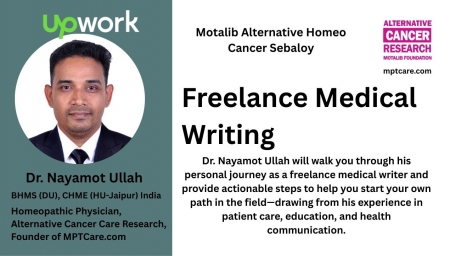
Freelance medical writing is an exciting and rewarding career that allows individuals to combine their passion for writing with their knowledge of healthcare. As a freelance medical writer, you have the opportunity to create impactful content that informs, educates, and inspires others. Whether you’re writing for medical journals, creating educational materials, or developing content for healthcare websites, the demand for skilled medical writers continues to grow.
The Importance of Networking
One of the key strategies for success in freelance medical writing is networking. Building connections within the industry can open doors to new opportunities and collaborations. Utilize platforms like LinkedIn to connect with healthcare professionals, fellow writers, and potential clients. Engaging in discussions and sharing your insights can help establish your presence in the field and attract clients who value your expertise.
Finding Opportunities
While there are various platforms to find freelance medical writing gigs, it’s essential to focus on quality over quantity. Avoid content mills and generic freelance job sites. Instead, consider using industry-specific directories and lists to identify potential clients who align with your expertise. Additionally, networking within professional organizations can lead to valuable job leads and collaborations.
Building Your Portfolio
An impressive portfolio is crucial for showcasing your writing skills and attracting clients. Start by creating samples of your work, such as articles, white papers, or educational materials. If you’re new to the field, consider volunteering to write for non-profit organizations or contributing to medical blogs to build your portfolio. As you gain experience, you can refine your portfolio to highlight your best work and the types of projects you want to pursue.
Setting Your Rates
Understanding how to price your services is vital for a successful freelance career. Rates can vary based on your experience, the complexity of the project, and the client’s budget. On average, medical writers charge between $40 to $60 per hour, with specialized writers commanding higher rates for technical projects. Researching industry standards and being transparent with clients about your rates can help you establish fair compensation for your work.
Continuous Learning
The field of medical writing is constantly evolving, with new research and developments emerging regularly. Staying updated on industry trends and advancements is essential for maintaining your credibility as a writer. Consider enrolling in courses or attending workshops to enhance your skills and knowledge. This commitment to continuous learning will not only improve your writing but also make you a more valuable asset to your clients.
Conclusion
Freelance medical writing offers a fulfilling career path for those passionate about healthcare and writing. By leveraging networking opportunities, building a strong portfolio, and continuously improving your skills, you can carve out a successful niche in this dynamic field. Embrace the journey, connect with others, and let your voice make a difference in the world of medical communication.


 অনুগ্রহ করে অপেক্ষা করুন। ছবি আটো ইন্সার্ট হবে।
অনুগ্রহ করে অপেক্ষা করুন। ছবি আটো ইন্সার্ট হবে।






